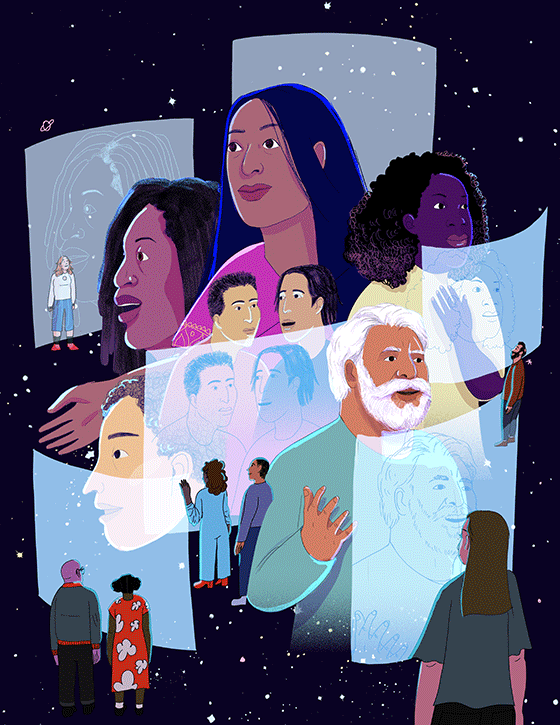Encounters with data and AI require contending with the uncertainties of systems that are most often understood through their inputs and outputs. Storytelling is one way to reckon with and make sense of these uncertainties. So what stories can we tell about a world that has increasingly come to rely on AI-based, data-driven interventions to address social problems?
Curated and edited by Ranjit Singh, Rigoberto Lara Guzmán, and Patrick Davison, Parables of AI in/from the Majority World grew out of an experimental workshop Data & Society held in October 2021 that was designed to produce new ways of engaging with the global impacts of digital technologies. The anthology brings together original stories about the everyday experiences of living with AI-based systems from storytellers in Africa, Latin America, the Middle East, and South Asia — who explore themes including postcolonial computing, data extractivism, dignity, solidarity, and data justice.
Storytelling is relational; it places storytellers in a relationship with a community of listeners. When a story is valued by those who hear it, who assume the responsibility of passing it on, it becomes a parable. Parables stick with their listeners. They are stories that people can identify with, and in which they see part of their own experience mirrored. The parables collected here offer a way to engage with the ordinary ethics of living with digital technologies in the majority world. That engagement with the ordinary is crucial to understanding emergent social patterns of data-driven life on a planetary scale.
Suggested Citation: Singh, Ranjit, Rigoberto Lara Guzmán, and Patrick Davison, eds. Parables of AI in/from the Majority World. New York: Data & Society Research Institute, 2022. http://dx.doi.org/10.2139/ssrn.4258527.


